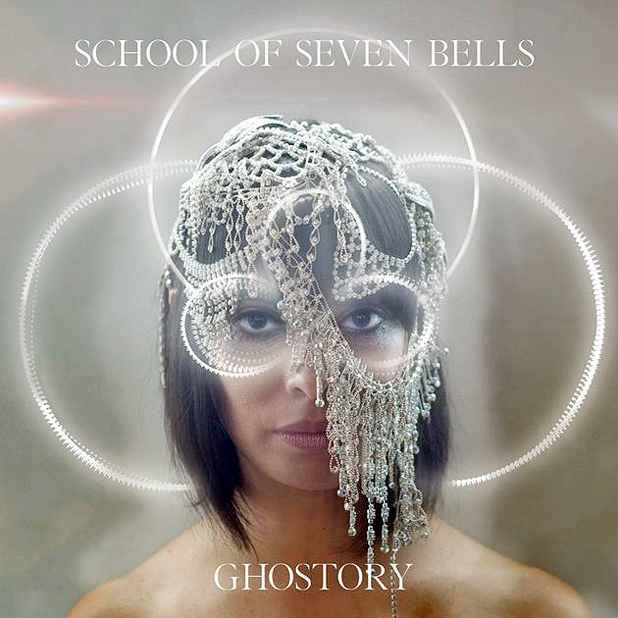
School of Seven Bells – Ghostory
There’s nothing so sure as change, as School of Seven Bells could no doubt tell you, having said goodbye to vocalist Claudia Deheza, twin sister to Alejandra Deheza, who remains in what is now a kind of electro-pop duo alongside man-who-does-the-music Benjamin Curtis.
I could bemoan the change – SVIIB were known and lauded for their full, soaring, buoyant harmonies, and the vocals on this third album, Ghostory, are subtly different, slightly subdued. But I won’t you know, because this new sound – a little stripped back, minimalist and sad, really works quite well.
There’s an immediacy to Ghostory that seems new. While SVIIB have often stressed in the past that lyrics and meaning are what drives their music, often we’ve been buffered from the full emotional impact by cushiony layers of delightfully sweet chorus. Now we’re more exposed to the bitterness and loneliness of this collection, which the band bills as a concept album about a woman called Lafaye haunted by her past loves. It might not be as much fun to listen to, sure, but it’s a rewarding experience nonetheless.
Alejandra Deheza’s lovely voice is well up to the task, moving effortlessly from full and throaty to a broken whisper, giving variety to this almost-too-consistent album. Unfortunately, the musical arrangements don’t stand up so well without the stirring crescendos of voices to fill the gaps – relying too much for my liking on the same borderline-cheesy drum track throughout. Perhaps it’s time someone gave the shoe gazers some foot-tapping movement to look at, but it risks sounding a bit mundane, and is a little easy to switch off from sometimes.
A run of songs midway through the album appealed most to me – ‘Low Times’, with vocals reduced to a husky whisper over a rapid, frenetic beat, followed by the drum-free ‘Reappear’, swirling in a mist of dark Fever Ray-style electronics, rounded off nicely by ‘Show Me Love’, which features deep fuzzy guitars and some interesting changes in pace.
There’s no denying Ghostory is a shift from the band’s previous well-received offering, Disconnect from Desire, or that the old pairing of lovely voices wasn’t something special. But change happens. SVIIB have run with that change, and Ghostory makes it pleasant enough to go along for the ride.
